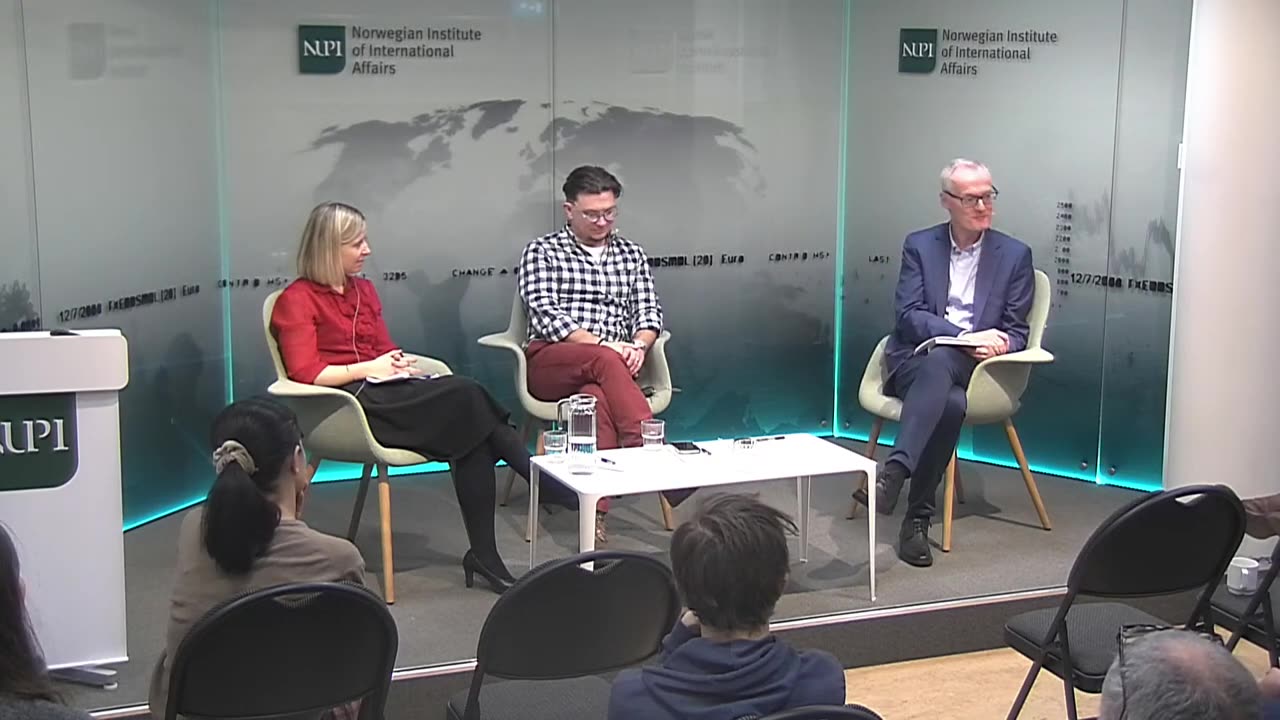Premium Only Content

COVID-19 conspiracy theories in mother Russia
This seminar, taking place at the Norwegian Institute of International Affairs (NUPI) on 6 Dec. 2022, will focus on the shady world of COVID-19 dissenters and how the informational resistance of this community has challenged the Kremlin’s political messaging. Based on a study of the Telegram channel ‘COVID-19 Resistance’ (later renamed ‘Conspiracy Theory’) Yablokov and Moen-Larsen explore how state-run communication related to COVID-19 has been received, framed, and criticised with the help of global and locally fostered conspiracy theories. They argue that such messenger channels stayed largely unaffected by the conspiracy theories pushed by the state. This, they argue, clearly demonstrates the limits of the effectiveness of the Kremlin’s propaganda.
Conspiracy theories are rife in Russia, with many locals espousing a mistrust of their government and its opaque operations. This often-toxic environment of suspicion can be traced to the Soviet Union's decades-long legacy of secrecy and totalitarianism - not only did it stifle freedoms of speech and expression, but also spurred paranoia among citizens about the ulterior motives of their state apparatus. Even today, when the country is formally democratic, conspiracy theories still abound; from rumors of assassinations orchestrated by the Kremlin to supposed plots against minorities, these conspiracies have become pervasive in Russian culture. While some may view them as an unproductive exercise in fearmongering, they nevertheless remain entrenched in public discourse, providing fodder for rumor mills and an outlet for dissenters to voice their displeasure with their leaders.
-
 2:05:48
2:05:48
2 MIKES LIVE
4 hours agoTHE MIKE SCHWARTZ SHOW with DR. MICHAEL J SCHWARTZ 12-24-2024
15.2K1 -
 1:14:17
1:14:17
MTNTOUGH Fitness Lab
1 day agoNavy SEAL Dom Raso: The Cold, Hard Truth About Modern Brotherhood | MTNPOD #96
11.9K1 -
 43:42
43:42
Dad Dojo Podcast
20 hours agoEP14: Every Girl Dad's Biggest Fear and How To Prevent It
7.9K -
 55:06
55:06
Bek Lover Podcast
13 hours agoWill Trump Pull Off A Miracle? Other Strange News Podcast...
6.67K5 -
 55:53
55:53
PMG
1 day ago $0.01 earned"Hannah Faulkner and Courtney Reed | BEHIND THE LENS OF A TRUMP PHOTOGRAPHER"
5.59K -
 8:09:50
8:09:50
Dr Disrespect
1 day ago🔴LIVE - DR DISRESPECT - MARVEL RIVALS - GOLD VANGUARD
225K37 -
 1:15:00
1:15:00
Awaken With JP
1 day agoMerry Christmas NOT Happy Holidays! Special - LIES Ep 71
310K259 -
 1:42:21
1:42:21
The Quartering
1 day agoTrump To INVADE Mexico, Take Back Panama Canal Too! NYC Human Torch & Matt Gaetz Report Drops!
221K145 -
 2:23:15
2:23:15
Nerdrotic
1 day ago $17.76 earnedA Very Merry Christmas | FNT Square Up - Nerdrotic Nooner 453
161K16 -
 1:14:05
1:14:05
Tucker Carlson
1 day ago“I’ll Win With or Without You,” Teamsters Union President Reveals Kamala Harris’s Famous Last Words
277K432